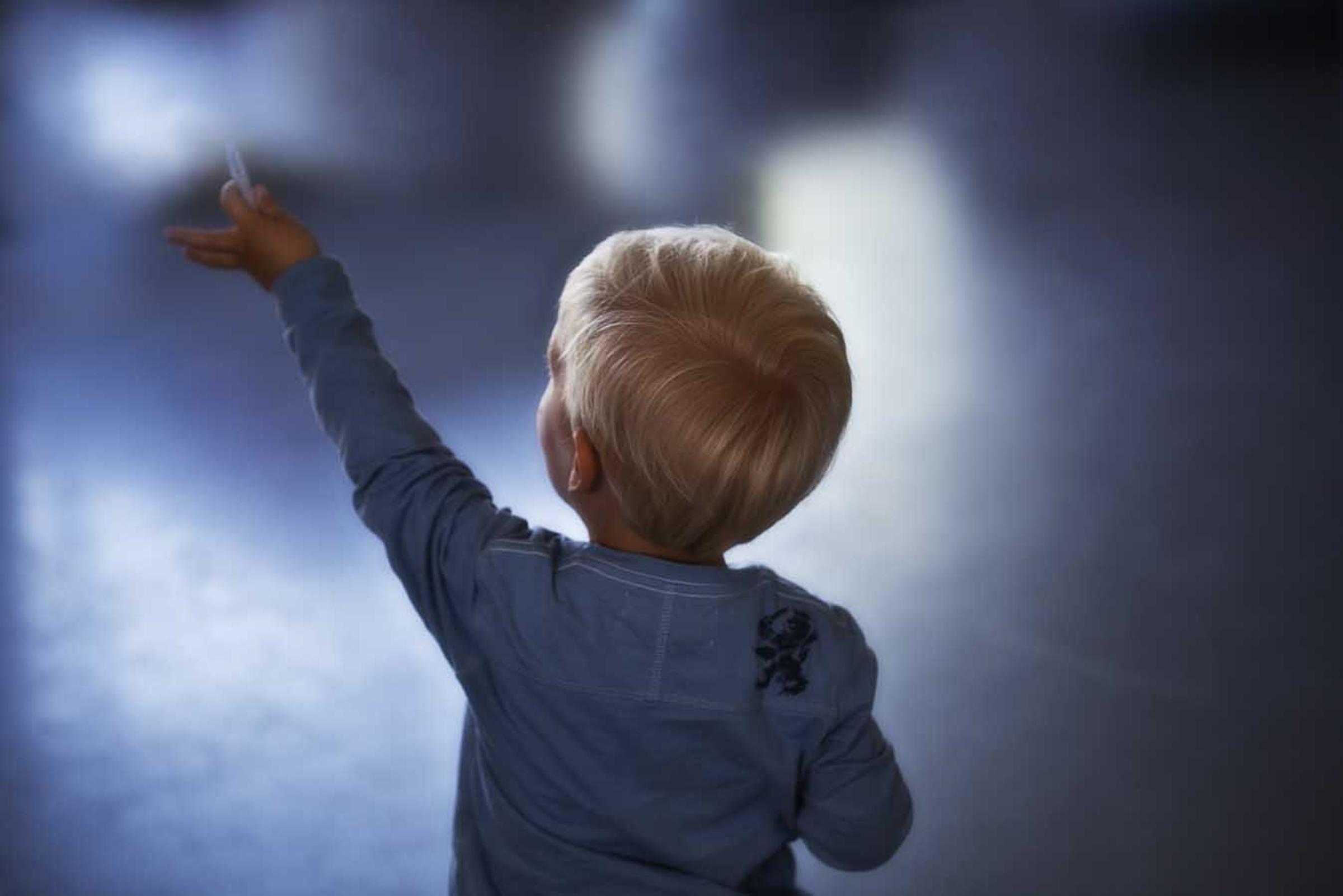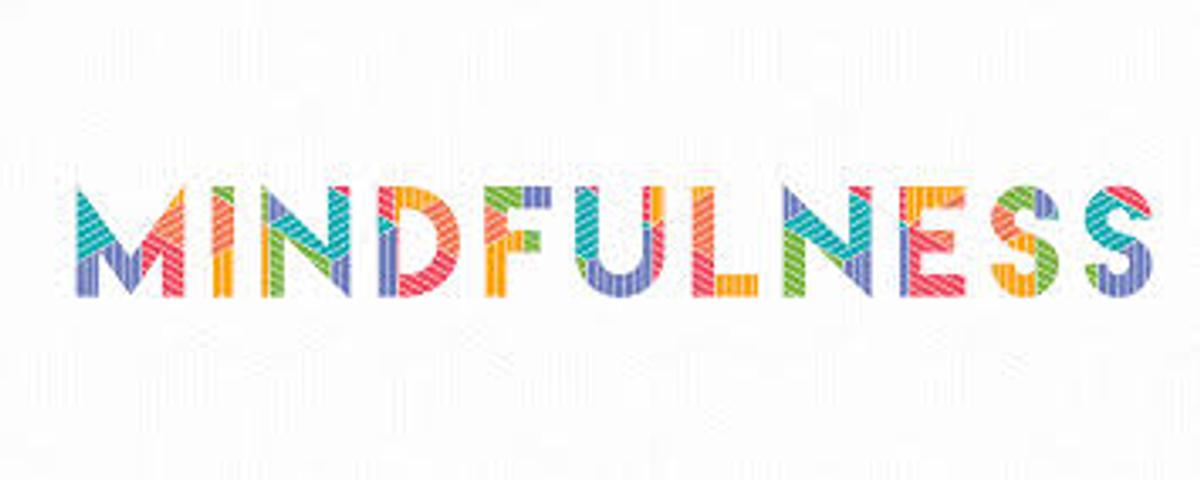Wellbeing

New Ways November
This month, the Action for Happiness calendar is encouraging you to try something new!
Learning something new or getting involved in an activity that really absorbs and interests us is great for our wellbeing. Keeping our brains active is not only good for us physically but it can help you feel you are flourishing as you see yourself make progress with a new skill, or just make you smile as you make a mess and decide to start again.
Being playful and trying new things is important, as is remembering that it's OK not to get it right first time - change "I can't do it" into "I can't do it .... yet!" This month's calendar is full of ideas to help you decide what to try next.
The Resilience Project
Our focus for the Resilience Project this term is Mindfulness. Mindfulness is our ability
to be calm and present at any given moment. We practice this through slowing down and concentrating on one thing at a time.
This could be our breathing, colouring or noticing the sounds we hear.
For more ideas of how to explore Mindfulness at home with your children and families, visit
https://theresilienceproject.com.au/at-home/learning/mindfulness/
BeYou is a national mental health in education initiative delivered by Beyond Blue, in collaboration with Early Childhood Australia and Headspace. BeYou supports educators to develop a positive, inclusive and resilient learning community for all members of the school community, children, parents and staff. The fact sheet taken from the BeYou website is all about the transition from Primary to secondary, the feelings or concerns your child may have and some warning signs that your child might be having trouble with the transition.
Understanding behaviour
Common feelings and concerns
Children often have strong feelings about moving into secondary school. They may feel excitement about the prospect of going to a new school, as well as nervousness about what lies ahead.
Many children may also feel sad or angry about leaving their current school and the positive relationships they’ve established with educators and friends. Common concerns include:
- losing old friends and making new friends
- being bullied
- getting lost and getting to class on time
- remembering what books and other equipment is needed for each class
- following a timetable
- dealing with different educators
- homework.
Girls generally have greater concerns than boys about the transition. The good news is that these concerns lessen in the first year at their new school for most boys and girls
Some children find the transition can be overwhelming and need extra support.
Some warning signs that children may be experiencing difficulty include:
- withdrawal or difficulty participating in class discussions
- exhibiting low confidence or self-esteem
- increased avoidance of tasks
- having a short temper or behavioural outbursts
- difficulties with maintaining friendships
- being socially isolated
Helping your family manage uncertainty
We certainly have had another year of ups and downs with many challenges. The following article is from the Parenting Ideas school website and is all about helping your family manage uncertainty.
“Uncertainty is part of life and yet our brain, which creates our thoughts and feelings, loves certainty and predictability.
The pandemic has created more uncertainty in families, schools and communities than most people can recall in their lifetimes. With no clear end point, more stress and anxiety may well be triggered. In small doses anxiety heightens your sense of focus, giving you an increased level of energy, and increases your chances of managing a potential challenge that has appeared. In large doses, this anxiety is problematic, as it can cause feelings of being overwhelmed and even panicked.
The lesson of being real
Many fears and unexpressed emotions lie beneath the stress of navigating uncertainty. Be prepared to share your emotions with your children, especially feelings of sadness. They experience grief every time they lose the opportunity to spend time with loved ones, go on holiday or return to school to see friends.
Grief is not a sign of weakness. It shows you are human. Let your children see you cry and give them the agency to know what to do. They can grab a tissue, they can give you a hug and, if they’re old enough, they can make you a cuppa.
Your children need to see that when bad things happen to adults, they can feel upset for a time. There are many ways you can help children cope with uncertainty.
Normalise uncertainty
Teach your children that nothing is permanent. Good things come and go. So will tough times. Change is a part of life and can be positive or challenging. Share stories about how your family recovered from hard times. Adaptability and flexibility are key components of resilience, which can be nurtured in childhood.
Make choices that ease fear and anxiety
Remind your children and young people that they are not powerless. Resting, reading and relaxing are great tools to ease fear and anxiety. This might include taking deep breaths, listening to music, or making others laugh. Getting outside to play or walk the dog is another simple way to ease the nervous system.
Focus on the things you can control
Simple habits and routines really make a difference. When everything is changing routines and rituals such as regular family mealtimes, bedtimes and wake up times help maintain a sense of normality. These rituals provide an important anchor helping them feel in control.
Encourage your kids to have a ‘gratitude attitude’
Though times are no doubt really tough for many, you can choose to feel grateful for the things you have, and the people love, and you can model this mindset with your children.
Maintain hope
Hope is an important antidote to feeling stuck in fear. Encourage feelings of hope by sharing wonderful memories via photos or videos which can lift everyone’s spirit. Plan a new experience to happen when that becomes a possibility.
Children and young people need to understand that life can be an unpredictable ride and together you can adapt and find a way through to each new day.
The greatest tool you have as a parent in these times is to remember that you are the ‘safe base’ for your children and young people. If you can embody that, and help them feel that no matter what, your love and support is a certainty, then the uncertainty around us all becomes a lot more manageable.”
Commonly known as the ‘queen of common sense’, Maggie Dent has become one of Australia’s favourite parenting authors and educators, with a particular interest in the early years, adolescence and resilience. She has written seven major books including the bestselling Mothering Our Boys and her 2020 release, From Boys to Men. Maggie is host of the ABC podcast, Parental As Anything. She is the mother of four sons and a very grateful grandmother. For further details visit maggiedent.com
Support for parents supporting children with anxiety
The Victorian Government has enabled free access to the Triple P Positive Parenting online programs aimed at Victorian parents to support children experiencing anxiety.
There are three online modules aimed at parents of children aged 0-16 years experiencing anxiety, anger and depression. Click on the Triple P Positive parenting blue link for more information.
It has been wonderful to have our first full week back together as a whole school. If you have any concerns about the wellbeing of your child or their transition back to school, please do not hesitate to contact me. rlenko@sfslynbrook.catholic.edu.au
Rachel Lenko
rlenko@sfslynbrook.catholic.edu.au
Student Wellbeing Leader




